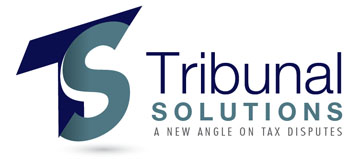Mediation is an alternative to the "Nuclear" option of the Tax Tribunal.
Introduction
Imagine you or your client have been engaged in a protracted dispute with HMRC and neither side seems willing to budge. What are your options? Historically, you could keep on writing letters in the hope that HMRC would back down, give in or take the matter to the First Tier Tax Tribunal. You might also instigate a complaints process if you thought HMRC were being totally unreasonable.
In the last few years another avenue has opened up – mediation.
What is Mediation?
Mediation is a form of “Alternative Dispute Resolution” and is often abbreviated to ADR. It is “alternative” as it bypasses the Courts and Tribunal system. In the past, there was a joke doing the rounds to the effect that lawyers thought ADR stood for “Alarming Drop in Revenue” but more recently they have embraced mediation with some enthusiasm.
The process involves each side (in this case the taxpayer and HMRC) getting together in the presence of a mediator whose job is to facilitate an agreement between the parties. In normal commercial mediation, the mediator would be independent of the parties but in tax mediation, the mediator is usually an HMRC person. This may seem strange but feedback so far indicates that the taxpayer is usually satisfied that the HMRC mediator does in fact maintain an independent stance. It may be possible to agree to use a totally independent mediator if HMRC agree.
What happens at Mediation?
The parties will arrange a date to meet and a suitable location.
Typically, after an initial summary by each side of their position, the sides will split into separate rooms and the mediator will oscillate between them trying to get a feel for each side’s position and conveying information to the other side (but only with the express authority of the party providing the information). The idea is that each side will be prepared to say things to the mediator which they might not be prepared to say to each other and the mediator will gain a more rounded picture of the situation. The mediator might also be able to give each side a “reality check”, particularly regarding the risks of not settling and subsequent possible legal fees.
Overall the mediator will look to get the parties into a “zone of potential agreement” where the differences are sufficiently narrowed to enable a compromise settlement to be reached. Once a deal is done, an agreement is drawn up which is signed by the parties and, at that point, becomes binding.
Not all disputes are suitable for mediation. For example, a technical dispute about the interpretation of Section … of ITTOIA 2005 is unlikely to be resolved by mediation and neither is a complex tax avoidance scheme. However, any matter which is not binary such as profit adjustments during an enquiry on business profits, queries following compliance checks, valuation disputes etc may well be fertile territory for mediation.
How to get the ball rolling
The process is quite simple. You simply fill in a form online at https://www.gov.uk/guidance/tax-disputes-alternative-dispute-resolution-adr
And wait to hear back.
What are the advantages/disadvantages?
The main advantage is that the process will give both parties an opportunity to gain a greater understanding of the other side’s position than would be possible via correspondence. If the mediator does their job properly, the process should also bring the parties closer together and enable an acceptable compromise solution to be reached. There may also be a cost saving compared with a full Tribunal hearing (but see below regarding mediation costs).
The other big advantage is that it is less risky than a Tribunal where there is likely to be a winner and a loser. Depending on the amounts involved, a total dismissal of an appeal may be unpalatable.
Should I be represented at the Mediation Hearing?
It is not obligatory to have a representative as the process is informal and non-binding (unless and until an agreement is signed) but, except where the amounts of tax are very small, there are likely to be significant benefits of having someone who is themselves an accredited mediator and understands the process. They will be able to interpret for you what is going on and how things are likely to evolve. They will also enable you to get the maximum benefit out of the process and give you some insight around how the HMRC side is likely to be approaching the matter. They can also make sure that all the relevant facts are aired and, where appropriate, communicated to the other side. Finally, they can give you a reality check if you are unwilling to compromise in any meaningful way and indicate the possible consequences of maintaining an entrenched position.
How much will it cost?
The main costs of the mediation will lie in the preparation required before the meeting (assembling documentation etc) and the costs of a representative at the meeting itself. Mediations rarely last more than a day. There may be cost savings compared with a normal Tribunal hearing but it would be unwise to focus on cost rather than the other benefits.
Summary
Mediation is actually a very complex process from a theoretical perspective and requires a wide range of skills on the part of the mediator. Many books have been written on the subject. The summary above is a simplification of the whole process to make it digestible to the reader.
From the point of view of the participator it is a lot less complicated and the taxpayer is likely to feel more engaged in the process than they would at a Tribunal. All that a taxpayer needs to bring to the mediation is an open mind, a willingness to participate in good faith and a degree of common sense and realism.
Why not give it a try?
Further reading: http://webarchive.nationalarchives.gov.uk/20140109143644/http:/www.hmrc.gov.uk/practitioners/adr-guidance-final.pdf
